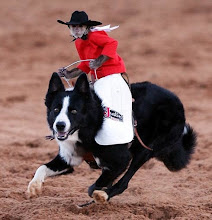Kudos to the major sports leagues and owners who get it.
Sometimes that means making decisions with the fans' best interest in mind, rewarding players who work hard and contribute to the community, or taking other steps to positively craft the image of a league or team.
The latest additions to the list are the NBA and the owners who met with JP Morgan Chase CEO Jamie Dimon this week to discuss the impact of the economy on their sport.
According to Bloomberg, owners from the 30 NBA teams met with Dimon in a New York hotel for more than an hour, delivering an "interpretation of the economy" based on data the company has collected. JP Morgan Chase is one of 14 banks that are involved in lending to the League as part of a $200 million line of credit it has taken out to help teams deal with the recesssion.
NBA Commissioner David Stern is forcasting a decline in league revenue next season. That is really significant in an era that has been marked by increased growth in many of the major sports leagues. Given that truth, even a leveling off of revenue has implications for the way franchises are run.
The League has a salary cap, so unlike Major League Baseball, which began to see the impact of the economy on its free agent market this season, there should'nt be too much of an impact on the team's personnel. But several teams are losing money and will depend on these NBA loans to stay afloat until the economy turns around.
That means that all the owners are kind of in this thing together. It's refreshing to see them meet and get on the same page, so that they can move forward unilaterally. They picked a good place to start meeting with Dimon, who has been influential on the national economic landscape recently.
It's not an unprecedented move. Major League Baseball owners met with former Federal Reserve chairman Paul Volcker in November and learned that the ills of the economy would take a while to fix.
But it's clear that the NBA is not going to sit back and let this turn into a major problem. By working proactively and consulting with the best in the world, they might be better suited to solve their problems in a way that will not effect their fans nationwide.
That is the best-case scenario right now because fans are the lifeblood of the league. Keeping them happy (and subsequently the advertisers who want to reach them) is important, and major changes as a result of the league's money problems won't be good for anybody.
The NBA obviously gets that.
Subscribe to:
Post Comments (Atom)

No comments:
Post a Comment